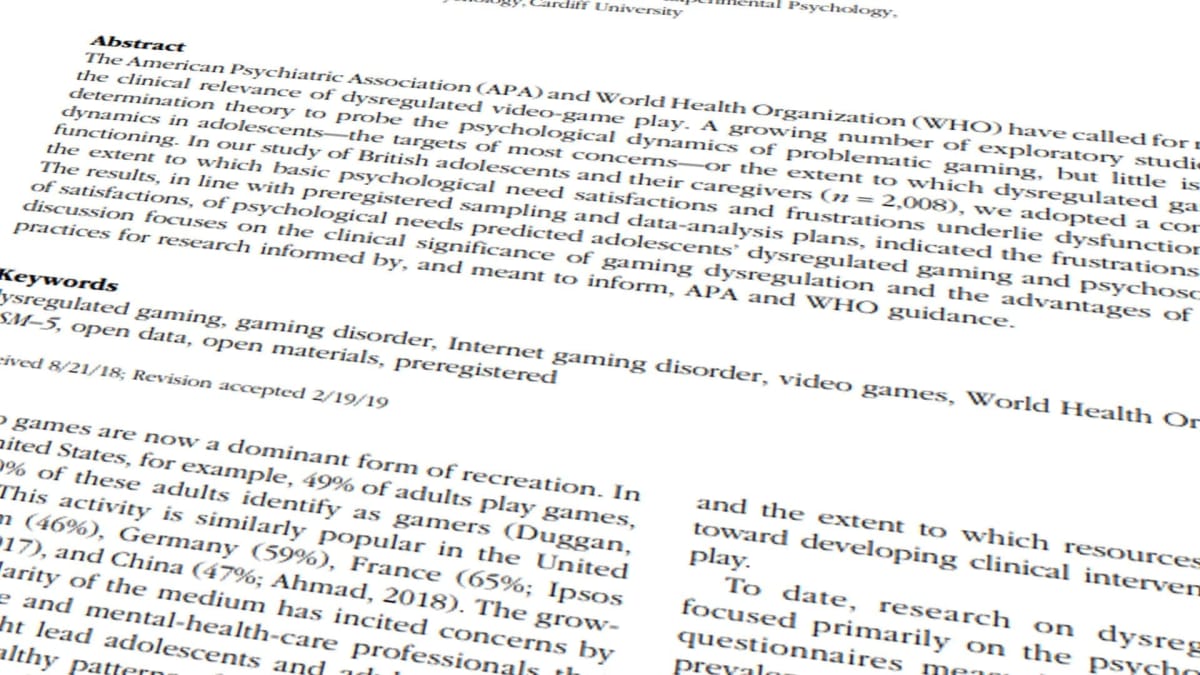A recent study from Oxford University has found "no compelling evidence" for gaming disorder serving as a standalone psychiatric diagnosis. Instead, this recent study suggests that young people who are gaming too much may be engaging in that behavior due to "underlying frustrations and wider psychosocial functioning issues".
VideoGamesChronicle highlighted the new study conducted by Andrew K. Przybylski and Netta Weinstein of the University Oxford and Cardiff University, respectively. The study collected and analyzed the data from 1,000 adolescents and 1,000 caregivers in England, Scotland, and Wales. The gamers had to complete questionnaires about their gaming behavior, while their caregivers detailed their child's emotional and social health in their estimation.
The study on Gaming Disorder discovered that most adolescents play at least one online game every day, less than half of whom reported an "obsessive" level of gaming. Daily players spent less than three hours per day gaming on average.

Study Co-Author Speaks Out Against Gaming Disorder
"The World Health Organisation and the American Psychiatric Association have called on researchers to investigate the clinical relevance of dysregulated video-gaming among adolescents, as previous studies have failed to examine the wider context of what is going on in these young peoples’ lives," said Professor Andrew Przybylski, the study's co-author and the director of research at the Oxford Internet Institute."
“This is something we seek to address with our new study. For the first time, we apply motivational theory and open science principles to investigate if psychological need satisfactions and frustrations in adolescents’ daily lives are linked to dysregulated – or obsessive – gaming engagement."
Critically, Professor Przybylski found something that many gamers likely suspected: it is not the gaming itself that is the issue; rather, obsessive gaming is a symptom of a deeper problem.
"Our findings provided no evidence suggesting an unhealthy relationship with gaming accounts for substantial emotional, peer and behavioral problems," he continued. "Instead, variations in gaming experience are much more likely to be linked to whether adolescents’ basic psychological needs for competence, autonomy, and social belonging are being met and if they are already experiencing wider functioning issues."
"In light of our findings, we do not believe sufficient evidence exists to warrant thinking about gaming as a clinical disorder in its own right."
What do you think of this particular Gaming Disorder study? Do you think Gaming Disorder should be classified as its own illness or is it the symptom of something greater? Let us know in the comments below!






